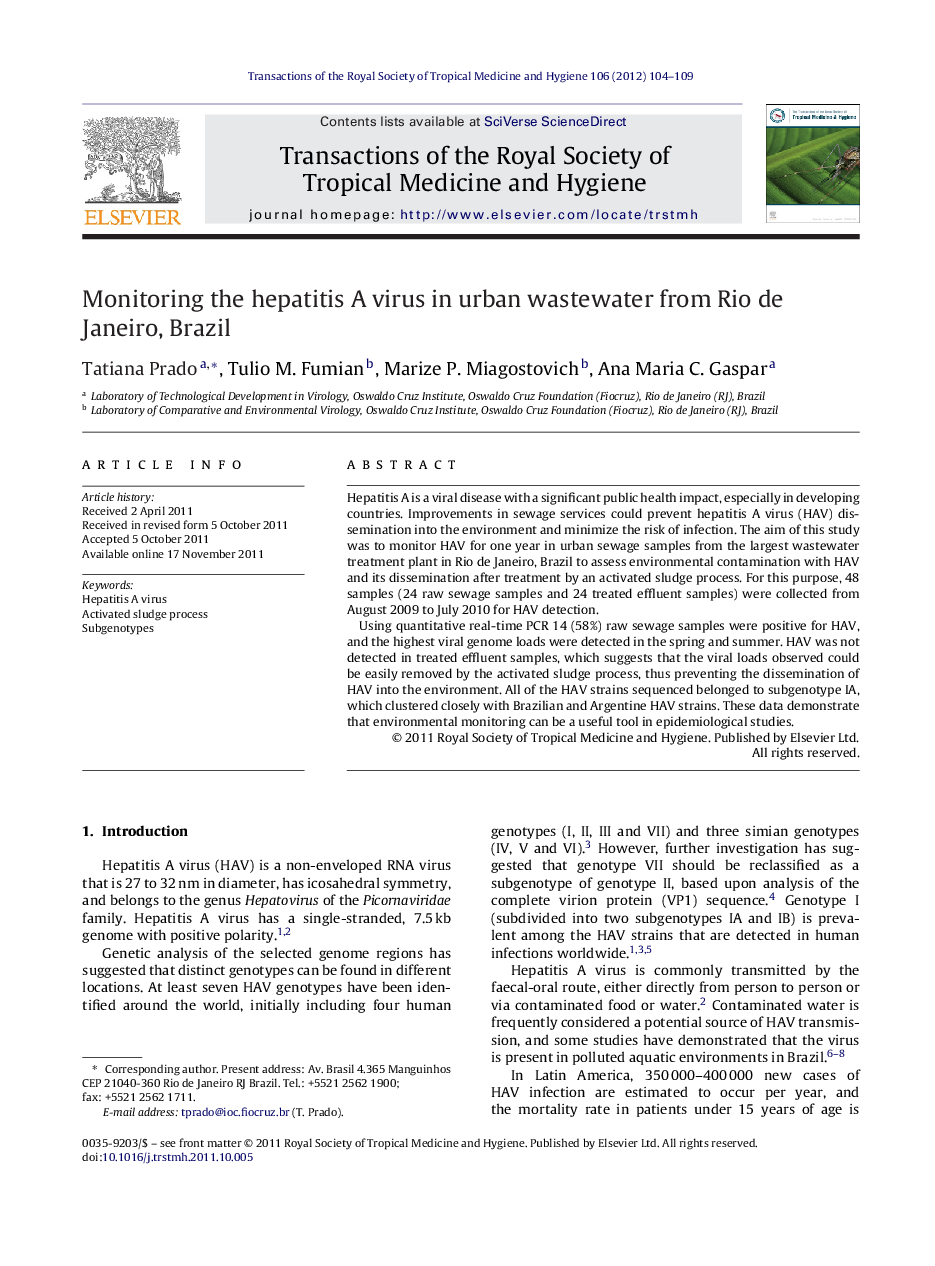| Article ID | Journal | Published Year | Pages | File Type |
|---|---|---|---|---|
| 6137269 | Transactions of the Royal Society of Tropical Medicine and Hygiene | 2012 | 6 Pages |
Abstract
Using quantitative real-time PCR 14 (58%) raw sewage samples were positive for HAV, and the highest viral genome loads were detected in the spring and summer. HAV was not detected in treated effluent samples, which suggests that the viral loads observed could be easily removed by the activated sludge process, thus preventing the dissemination of HAV into the environment. All of the HAV strains sequenced belonged to subgenotype IA, which clustered closely with Brazilian and Argentine HAV strains. These data demonstrate that environmental monitoring can be a useful tool in epidemiological studies.
Related Topics
Life Sciences
Immunology and Microbiology
Applied Microbiology and Biotechnology
Authors
Tatiana Prado, Tulio M. Fumian, Marize P. Miagostovich, Ana Maria C. Gaspar,
